
Kód: 04461334
Political Violence in the Weimar Republic, 1918-1933
Autor Schumann
In noting that political violence was the product of choices made by political actors rather than the result of irresistible forces ...Schumann issues a pertinent warning while making a first-rate contribution to the scholarly lit ... celý popis
- Jazyk:
 Angličtina
Angličtina - Vazba: Brožovaná
- Počet stran: 398
Nakladatelství: Berghahn Books, 2012
- Více informací o knize

Mohlo by se vám také líbit
-

Both Feet Firmly Planted in Midair
814 Kč -

Tariffs, Blockades, and Inflation
4006 Kč -

Solemn Mass for a Full Moon in Summer
312 Kč -

My Brother's Keeper
316 Kč -

Kempe's Operative Neurosurgery
3017 Kč -

Querflöte, Schülerheft
358 Kč
Darujte tuto knihu ještě dnes
- Objednejte knihu a zvolte Zaslat jako dárek.
- Obratem obdržíte darovací poukaz na knihu, který můžete ihned předat obdarovanému.
- Knihu zašleme na adresu obdarovaného, o nic se nestaráte.
Více informací o knize Political Violence in the Weimar Republic, 1918-1933
Nákupem získáte 79 bodů
 Anotace knihy
Anotace knihy
In noting that political violence was the product of choices made by political actors rather than the result of irresistible forces ...Schumann issues a pertinent warning while making a first-rate contribution to the scholarly literature on the Weimar Republic. Central European History [A[ well-documented and skillfully argued book. German Studies Review In his exceptional regional study of the Prussian province of Saxony, Schumann offers a richly detailed analysis of political violence in the Weimar Republic...This is a wordy but methodical and ultimately convincing work of scholarship. Choice Schumann ...calls into question some assumptions, provides interesting nuances, and helps to refine our understanding of the nature of political violence in Weimar Germany. Journal of Modern History ...provides a well-documented, solid narrative and challenging analysis of Weimar's political violence...American Historical Review [This] definitive work, rich in source material and analysis, dispels stereotypes of political violence in the Weimar Republic. Historische Zeitschrift The Prussian province of Saxony-where the Communist uprising of March 1921 took place and two Combat Leagues (Wehrverbande) were founded (the right-wing Stahlhelm and the Social Democratic Reichsbanner) - is widely recognized as a politically important region in this period of German history. Using a case study of this socially diverse province, this book provides a comprehensive analysis of political violence in Weimar Germany with particular emphasis on the political culture from which it emerged. It refutes both the claim that the Bolshevik revolution was the prime cause of violence, and the argument that the First World War's all-encompassing "brutalization" doomed post-1918 German political life from the very beginning. The study thus contributes to a view of the Weimar Republic as a state in severe crisis but with alternatives to the Nazi takeover. Dirk Schumann is Professor of History at Georg-August University, Gottingen. He is the co-editor of Life After Death (2003), Violence and Society after the First World War (first issue of Journal of Modern European History [2003]), Between Mass Death and Individual Loss (2007). Most recently, he has edited Raising Citizens in the "Century of the Child": The United States and German Central Europe in Comparative Perspective (2010).
 Parametry knihy
Parametry knihy
Zařazení knihy Knihy v angličtině Humanities History History: specific events & topics
793 Kč
- Plný název: Political Violence in the Weimar Republic, 1918-1933
- Autor: Schumann
- Jazyk:
 Angličtina
Angličtina - Vazba: Brožovaná
- Počet stran: 398
- EAN: 9780857453143
- ISBN: 0857453149
- ID: 04461334
- Nakladatelství: Berghahn Books
- Hmotnost: 576 g
- Rozměry: 227 × 152 × 19 mm
- Datum vydání: 01. April 2012
Oblíbené z jiného soudku
-

Man's Search for Meaning
179 Kč -

Women, Race & Class
276 Kč -

Pianist
211 Kč -

Out Of Place
303 Kč -
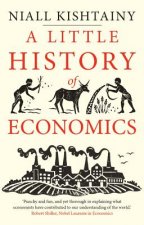
Little History of Economics
350 Kč -

Laughter in Ancient Rome
501 Kč -

Civilization and Capitalism, 15th-18th Century
1611 Kč -

Armies of Medieval Burgundy 1364-1477
395 Kč -

Night
250 Kč -

Society of the Spectacle
291 Kč -

Imperialism: The Highest Stage of Capitalism
196 Kč -

Man's Search For Meaning
410 Kč -

Homo Deus
265 Kč -

Ordinary Men
306 Kč -

Black Earth
358 Kč -

The Complete MAUS
462 Kč -

The Rape of Nanking
441 Kč -

Madness and Civilization
419 Kč -

Conquerors
306 Kč -

Stoned
276 Kč -

Twelve Years a Slave
90 Kč -

At Home
303 Kč -

Origins of Museums
1370 Kč -

Measure of a Man
373 Kč -

Delirious New York
679 Kč -

Eichmann in Jerusalem
306 Kč -

Mein Kampf - The Ford Translation
985 Kč -

Bloodlands
358 Kč -

Guns, Germs and Steel
358 Kč -

Cold War Submarines
865 Kč -

Fall of Public Man
410 Kč -

Che Guevara
551 Kč -

Dancing In The Streets
303 Kč -

Fix the Pumps
351 Kč -

Blue
954 Kč -

Revolutionary Yiddishland
336 Kč -

Commandant Of Auschwitz
303 Kč -

Jewish State
277 Kč -

Eichmann in Jerusalem
357 Kč -

Reflections on the Revolution in France
250 Kč -
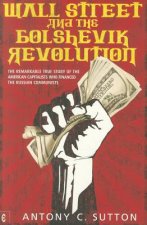
Wall Street and the Bolshevik Revolution
357 Kč -

Corgi Toys
407 Kč -

Night
276 Kč -
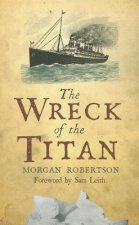
Wreck of the Titan
306 Kč -

McMafia
303 Kč -

Intimate History of Humanity
357 Kč -
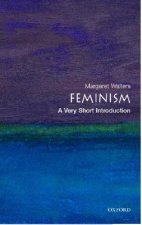
Feminism: A Very Short Introduction
250 Kč -

White Gold
357 Kč -
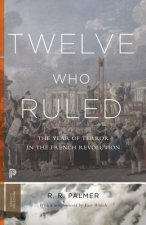
Twelve Who Ruled
600 Kč
Osobní odběr Praha, Brno a 12903 dalších
Copyright ©2008-24 nejlevnejsi-knihy.cz Všechna práva vyhrazenaSoukromíCookies



 Vrácení do měsíce
Vrácení do měsíce 571 999 099 (8-15.30h)
571 999 099 (8-15.30h)